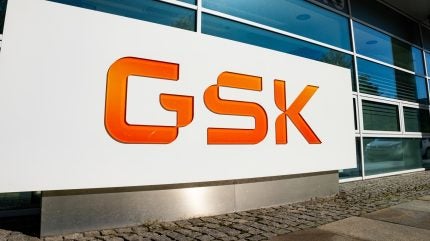
GSK has gained approval from the US Food and Drug Administration (FDA) for its monoclonal antibody, Nucala (mepolizumab), as an add-on maintenance treatment for the adult population with chronic obstructive pulmonary disease (COPD) that is inadequately controlled, and an eosinophilic phenotype.
The decision is supported by positive data from the Phase III MATINEE and METREX trials, which demonstrated a significant minimisation in the annualised rate of moderate/severe exacerbation rates among patients.

Discover B2B Marketing That Performs
Combine business intelligence and editorial excellence to reach engaged professionals across 36 leading media platforms.
Nucala targets interleukin-5 (IL-5), a cytokine involved in type 2 inflammation.
Exacerbations in COPD are critical events that can lead to irreversible damage to the lungs, worsening of symptoms and increased likelihood of death.
The goal of COPD management is to prevent such exacerbations. During the trials, the incidence of adverse events was comparable between the antibody and placebo groups.
Mepolizumab is the only approved biologic that has been assessed in individuals with an eosinophilic phenotype marked by a blood eosinophil count (BEC) threshold as low as ≥150 cells/µL (microlitre).

US Tariffs are shifting - will you react or anticipate?
Don’t let policy changes catch you off guard. Stay proactive with real-time data and expert analysis.
By GlobalDataBEC measures eosinophil levels captured through a blood test, which helps in indicating a patient’s exacerbation risk.
GSK respiratory, immunology and inflammation research and development (R&D) global head and senior vice-president Kaivan Khavandi stated: “The approval of Nucala in the US provides an important option for COPD patients.
“Long-term follow-up studies have demonstrated that exacerbations are the single most important predictor of future risk, with particularly poor outcomes in those requiring hospital visits or admissions.”
The antibody has not yet gained approval for COPD treatment in any other country, but regulatory submissions are being reviewed in Europe and China.
It has been developed to treat a range of IL-5-mediated conditions associated with type 2 inflammation, and is approved in Europe for four such conditions and in the US for five.
In April 2025, ABL Bio and GSK entered a global licensing agreement to develop treatments for neurodegenerative conditions.




